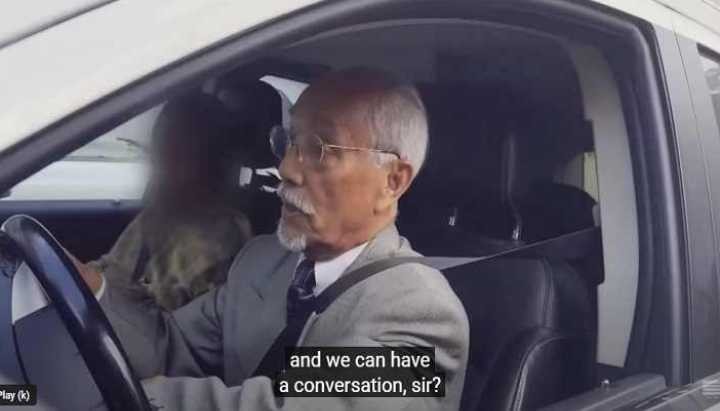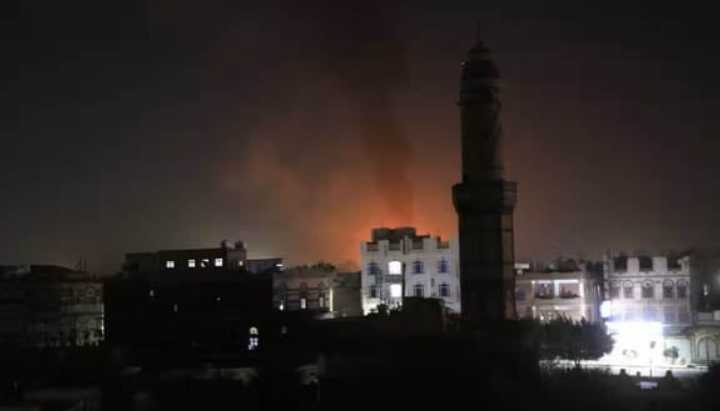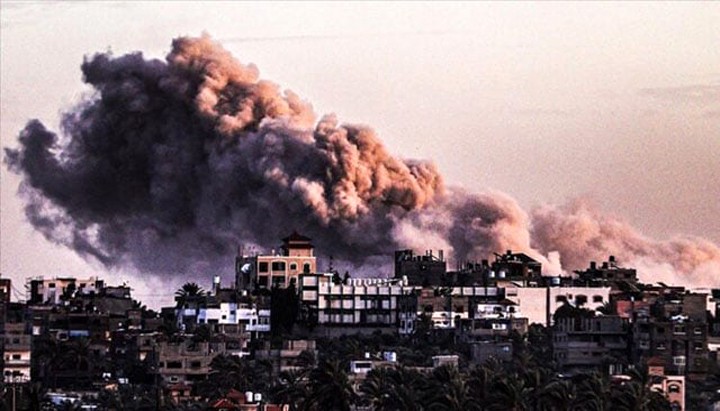The man, convicted for
shooting Bangladesh's founder Bangabandhu Sheikh Mujibur Rahman dead, sped away
as Canadian national CBC TV network approached him for comments on his role in
the assassination and the story he told the Canadian officials for his
protection.
"Sir, if we could
just have . . . just a quick conversation . . . I just want know if you have
been truthful with Canadians about your role in the assassination," a CBC
TV journalist was seen asking someone onboard a white SUV car, which was about
to be get started.
The man was one of
fugitive convicts, sacked major Nur Chowdhury, while CBS TV's investigative
journalist Mark Kelly described him as someone who pitted Canada against
Bangladesh as he was living in Canada for the past 27 years.
In reply to the CBS TV
journalist's question, the killer was heard saying "just a second, just a
second, I have an (indistinct chatter)" and then hastily maneuvered the
car and subsequently sped away. The report also showed a glimpse of him on the
balcony of an apartment in Toronto.
The presenter and
colleague at that point were seen to run after Nur's car few steps in their
attempt to persuade him to stop and talk and then Kelly commented "after
27 years living freely in Canada, it seems he has nothing more to add".
Most plotters of the
August 15, 1975 putsch fled the country in 1996 when the general elections
brought Bangabandhu's Awami League back to power while until then they were
protected from justice under an infamous indemnity law.
Nur took refuge in
Canada and continued to live there a quiet life and for years his whereabouts
were unknown.
The CBS TV's popular
investigative segment The Fifth State aired the 42-minute documentary two days
ago with a title -- Assassin Next Door - questioning "Why the killer of
Bangladesh's first president is free in Canada".
Returning to power
after exhausting 21 years in a political wilderness Awami League scrapped the Indemnity
Act to expose the killers to justice while after a protracted legal process
Noor and 11 other sacked military officers were sentenced to death and six of
them were hanged so far.
The rests were on the
run abroad while the government later confirmed one of them to have died a
natural death while he was in hiding in Zimbabwe.
Bangladesh authorities
could confirm the current abode of another convict sacked major Rashed
Chowdhury in the United States while the Interpol had issued a red alert for the
fugitives as part of efforts to track them down.
In a comment to the
Canadian TV network years ago, Nur, however, said he was not at the carnage
scene at the time when Bangabandhu was killed along with most of his family
members. "That's not true, I wasn't there. I was nowhere near that place,"
he told in an audio comment to the TV, visibly evading his personal visual
appearance on the TV screen.
Kelly, who made the
documentary talked to the key-people relating to the Bangabandhu Murder Trial,
and all of them binned Nur's claim with Bangabandhu's daughter and incumbent
Prime Minister Sheikh Hasina calling it an "absolute lie".
Current Law Minister Anisul Huq who was a key
prosecution lawyer in the trial alongside his lawyer father Serajul Huq, chief
police investigator of the case Abdul Kahhar Akand and the current CID chief
who preserved the case documents also rejected Nur's denial.
They said most of his
co-accused who faced the trial in person described Nur's role during the
investigation process.
Extradition issue
The documentary focused
mainly on Nur's extradition issue and unearthed that in 2002 the Canadian
Immigration and Refugee Board (IRB) had ruled he was a "fugitive from
justice" and his alibi was "simply implausible".
The then Canadian
minister for public safety Stockwell Day appeared in the documentary and said
he had reviewed Nur's file and strongly felt "he shouldn't be here (in
Canada)" and then his office went to the Canadian court supporting the IRB
decision to send him back to Bangladesh.
According to the legal procedure a decision was
made that Nur must go back home.
"But (Nur) Chowdhury had a last
lifeline. Five years earlier the Supreme Court ruled it was violation of
charter of rights to deport any from Canada who faced death or torture back
home," the documentary presenter commented.
He said Nur took the advantage of the ruling
saying that would exactly happen to him if he was deported, prompting
Bangladesh to go to Canadian federal court to know his legal status while the
court "ordered Canada to rethink its position".
Canadian government then informed Bangladesh
that while "there may be benefits in disclosing information regarding Nur
Chowdhury, those benefits do not take precedence over Canada's stance regarding
death penalty".
"(But) there is one important loophole
to that stance. The Supreme Court ruled people could be sent to their deaths
under exception circumstances," the presenter commented reviewing the
ruling.
Kelly interviewed a senior law professor of
Dalhousie University Robn Currie, a specialist on international criminal law,
who said "in this area of law, it's probably the most mysterious phrase
that there is".
Currie said when the court first formulated
the phrase, "some people called it the bin Laden clause, meaning if
someone like Osama bin Laden were to show up in Canada, we would overcome our
aversion to the death penalty and say in the greater interest of justice, this
person should be extradited or deported".
The law professor said he thought the Canada
was in an uncomfortable position with Nur being in Canada.
The presenter posed a question for the
audience if taking part "in the assassination of a world leader and 21
members of his household including a 10-year-old boy" (Bangabandhu's son
Sheikh Russell) were an "exceptional circumstances" and added
"it's a clause that has never been tested before".
Bangladesh High Commissioner to Canada
Khalilur Rahman told the presenter that Dhaka wanted Canadian authority to take
the case before their Supreme Court and "if your Supreme Court says that
no, he cannot be deported, we will accept. And then we can take the other
options".
Asked why Bangladesh was not taking the other
options now, a visibly frustrated envoy said "they (Canadian authority)
are not talking".
"We need to talk, we need dialogue,"
Rahman said.
Currie, the law professor, called the silence
of the Canadian authority "the missing piece".
Going back to Canada's former public safety
minister, the presenter sought his opinion if Canada was harbouring an assassin
or standing up for human rights.
In reply Stockwell Day said Canada would be
standing on a "moral high ground" by saying "He (Nur) is
accountable for what he has done and we should negotiate with Bangladesh to see
how we can get him out of here and put him back in the hands of people of
Bangladesh".
The documentary then showed Nur working in
the garden on the balcony of what appeared to be his apartment when the
presenter commented "far from the diplomatic crossfire, Nur Chowdhury
carries on his quiet life".
Kelly and his TV crew then visibly awaited
Nur to descend and get on his white SUV car to be approached with his question,
which he evaded, speeding away.
The presenter is then seen at the Dhaka
residence of Huq, who previously stood as a lawyer for prosecuting Nur in
absentia for the murder of Bangladesh's Father of the Nation and now fighting
for his extradition as the law minister.
Kelly asked him if he believed Nur had got
away with murder and after a momentary pause, the reply came with a smile on
Huq's face.
"So far . . . yes. So far yes, but we
will see to the end," Huq said.








